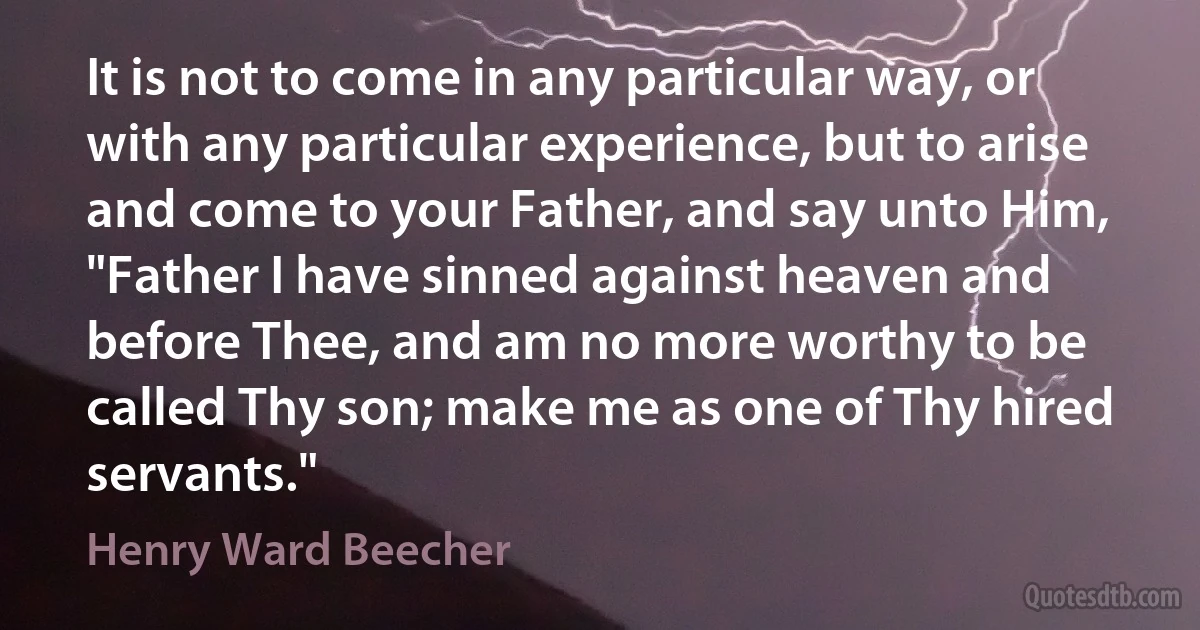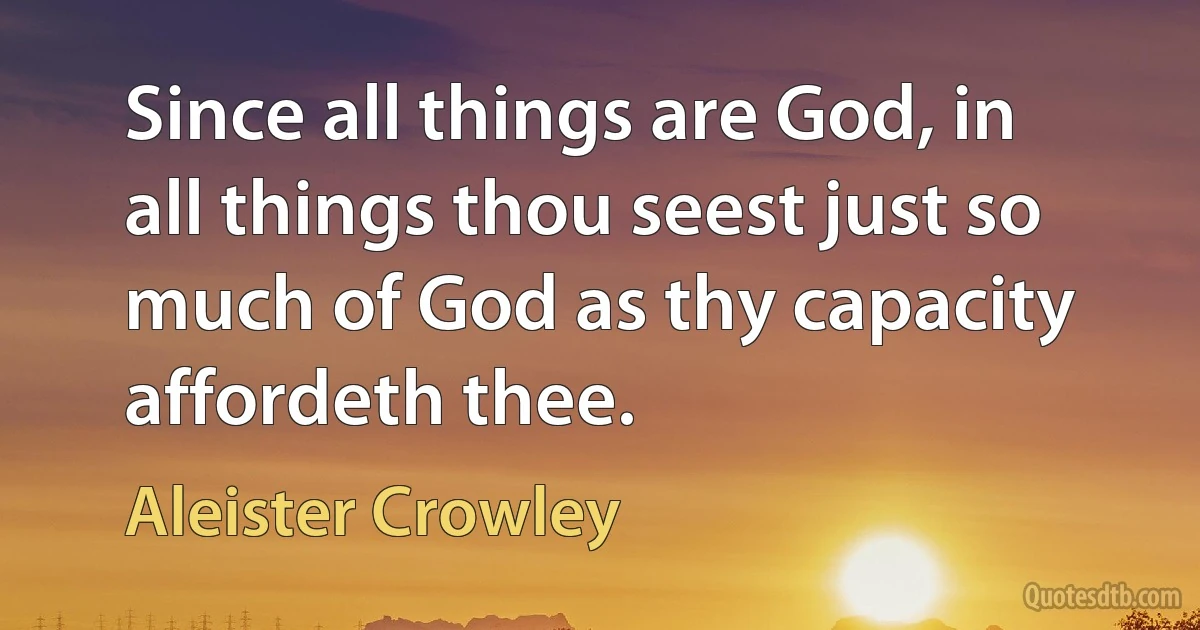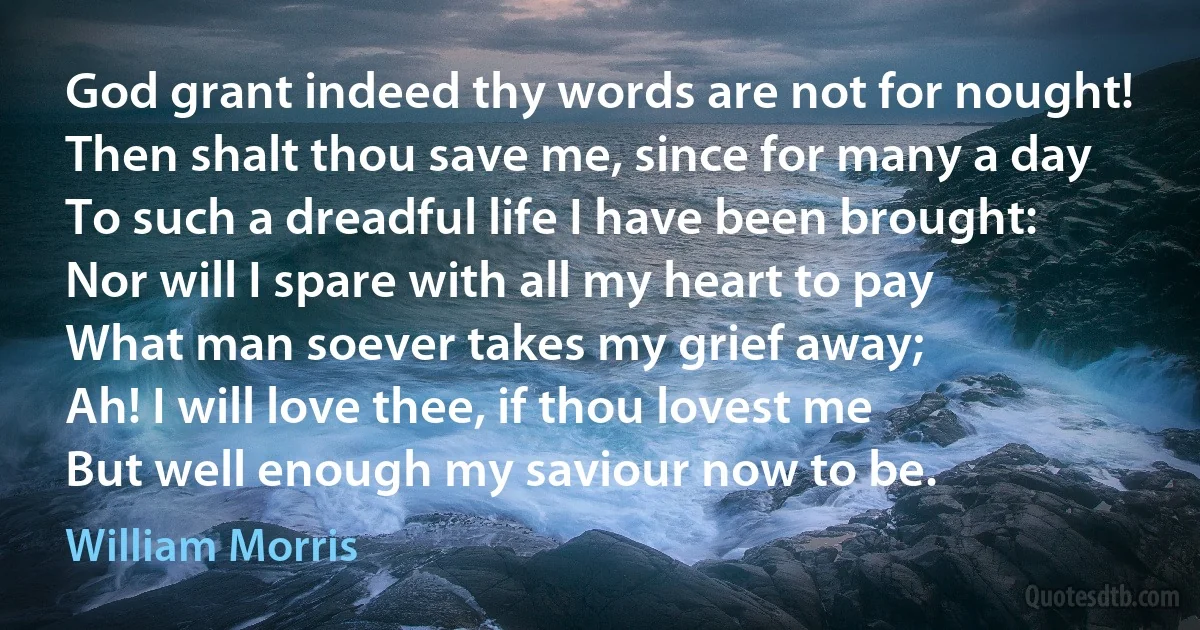Thee Quotes - page 13
Were I as rich in worldly commodity, as in hearty will, I would thank you most princely for your very welcome and agreeable letter; but, were it so, I should not proportion my gratitude to your wants; for, blessed be the God of thy hope! thou wantest nothing - more than, what's in thy possession, or in thy power to possess. I would neither give thee Money, nor Territory, Women, nor Horses, nor Camels, nor the height of Asiatic pride, Elephants; I would give thee Books.

Ignatius Sancho
Get thee back into the tempest and the Night's Plutonian shore!
Leave no black plume as a token of that lie thy soul hath spoken!
Leave my loneliness unbroken! - quit the bust above my door!
Take thy beak from out my heart, and take thy form from off my door!"
Quoth the Raven, "Nevermore.

Edgar Allan Poe
For not one of us asserts that "God partakes of form or colour.” Nor does He even partake of "motion,” because He stands firm, and His nature is permanent, and He invites the righteous man also to do the same, saying: "But as for thee, stand thou here by Me.” And if certain expressions indicate a kind of motion, as it were, on His part, such as this, "They heard the voice of the Lord God walking in the garden in the cool of the day,” we must understand them in this way, that it is by sinners that God is understood as moving, or as we understand the "sleep” of God, which is taken in a figurative sense, or His "anger,” or any other similar attribute. But "God does not partake even of substance.”.

Origen
Behold me, Lucius; moved by thy prayers, I appear to thee; I, who am Nature, the parent of all things, the mistress of all the elements, the primordial offspring of time, the supreme among Divinities, the queen of departed spirits, the first of the celestials, and the uniform manifestation of the Gods and Goddesses; who govern by my nod the luminous heights of heaven, the salubrious breezes of the ocean, and the anguished silent realms of the shades below: whose one sole divinity the whole orb of the earth venerates under a manifold form, with different rites, and under a variety of appellations.

Apuleius
Nasreddin Khodja commanded his disciples, when he sneezed, to salute him by clapping their hands and crying out: "Haïr Ollah, Khodja," that is "Prosperity to thee, O Master!" Now it came to pass that on one of the days the bucket fell into the well [...] he descended, caught the bucket, and the boys were already pulling him up, when, just as he was drawing near the edge of the well, he chanced to sneeze. Whereupon they, mindful of the master's behest, let go the rope and, clapping their hands in high glee, cried out in chorus: "Haïr Ollah, Khodja," Nasreddin was precipitated violently into the well, bruising himself against the sides. [...] "Well, boys, it was not your fault, but mine: too much honour is no good thing for man."

Nasreddin



